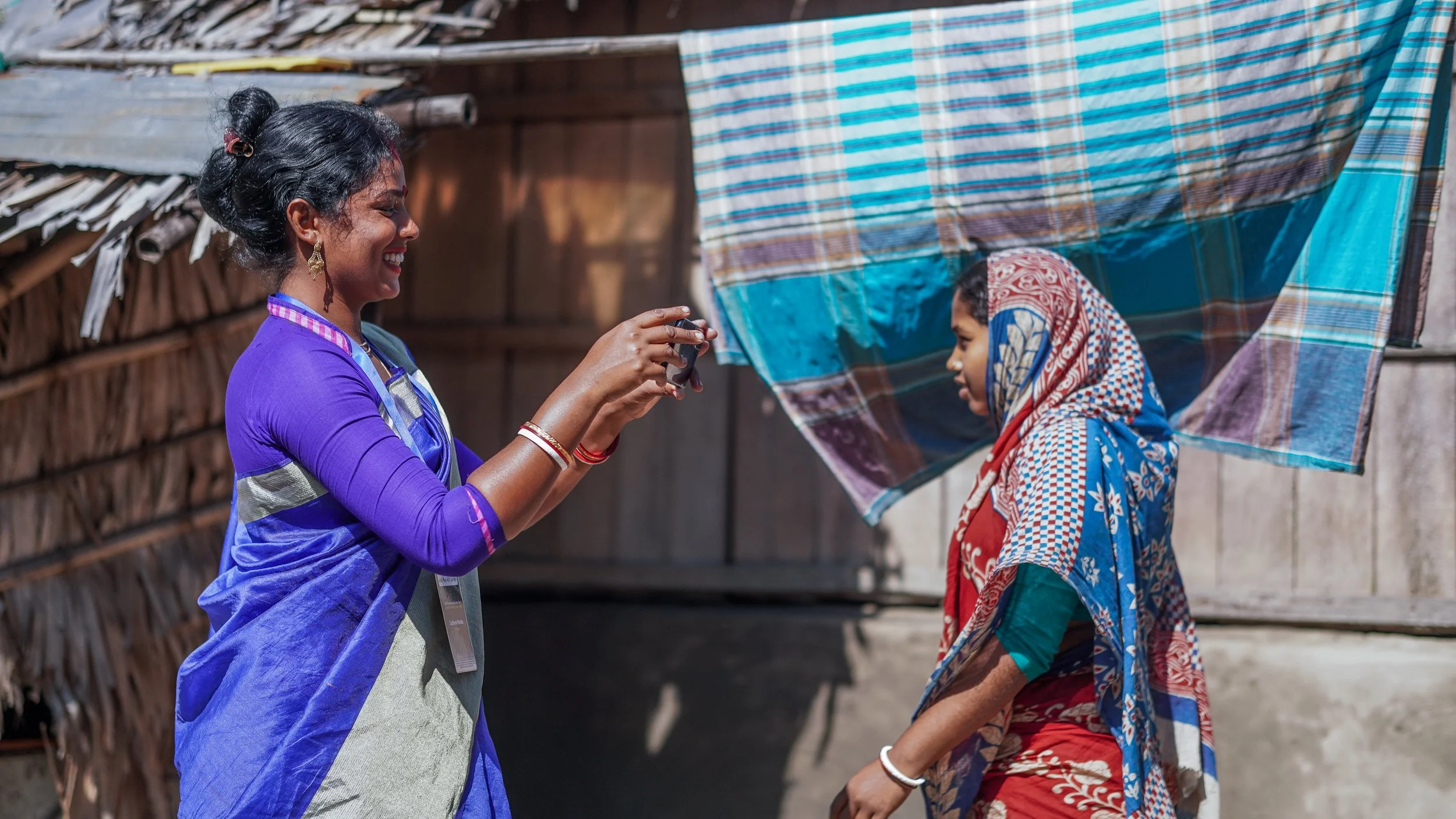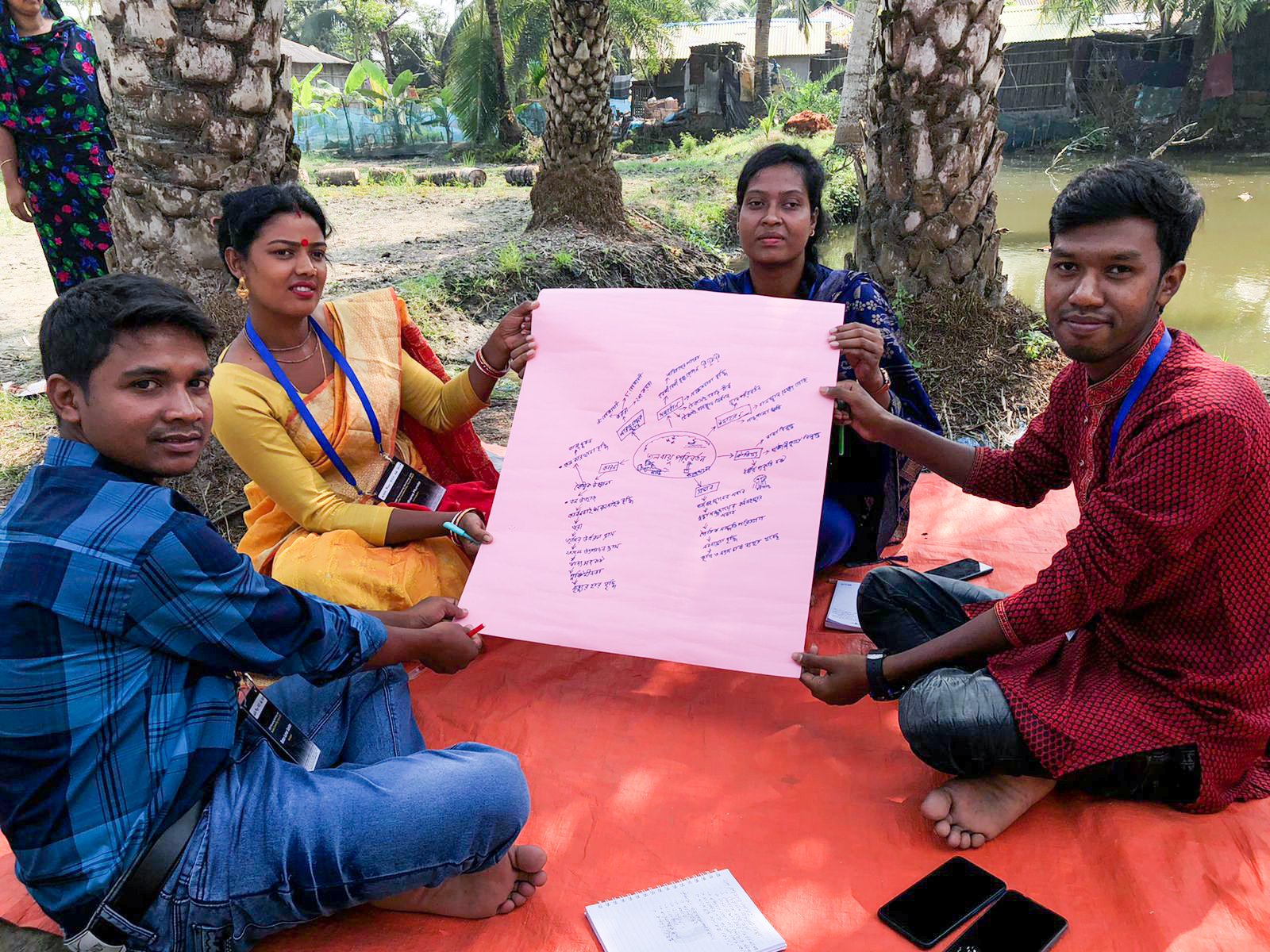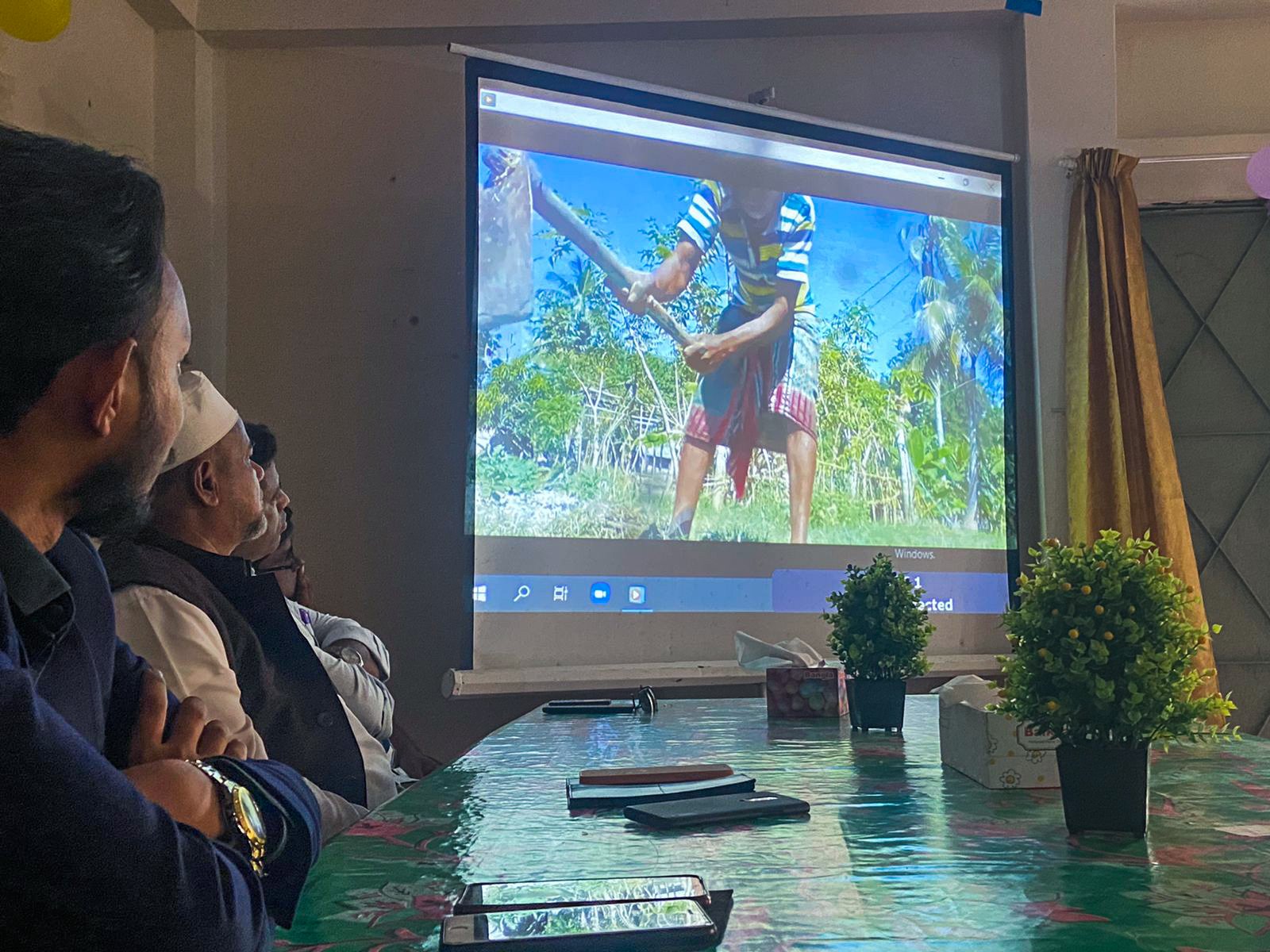The Community Digital Storytelling and Delta Futures Project in Bangladesh
Dr Angelos Theocharis (Durham University)
The Community Digital Storytelling and Delta Futures Project (CDST) supports indigenous communities in Asian megadeltas to tell their stories of climate crisis and environmental degradation. The project asks the participants: How is the delta changing? How are delta dwellers adapting? What do they want the world to know about the everyday struggles of their community? CDST involves the production of short films and digital content through a collaborative process, which sees facilitators engage with participants to bring about a body of authentic, individual stories using a variety of creative forms of communication and expression, including photography, videos, narration, and music.
Credit: University of Liberal Arts Bangladesh
The first case study of the CDST project focuses on the indigenous Munda community in the Ganges-Brahmaputra-Meghna delta in Bangladesh. The two workshops were conducted in collaboration with the University of Liberal Arts Bangladesh (ULAB) and the Dhaka International Mobile Film Festival (DIMFF) and engaged 18 participants (9 male and 9 female). The first workshop took place in Koyra, Khulna from November 7th to 11th in 2021 with the support of the local NGO “Initiative for Coastal Development”; while for the second, the CDST team moved to Shyamnagar, Satkhira, partnering with the NGO “People’s Research on Grassroots Ownership & Traditional Initiative (PROGOTI)” from January 23rd to 29th, 2022.
Credit: University of Liberal Arts Bangladesh
Each workshop started with an introduction to the project and a discussion about the impact of climate change on delta communities. Based on this discussion, the workshop participants sketched their mindmaps that allowed them to capture their socio-ecological challenges and collectively decide on the main themes of their short films. After the completion of the in-group storytelling, the participants worked individually on their storyboards supported by the facilitators who gave advice on story development and structure.
Credit: University of Liberal Arts Bangladesh
The following day, the facilitators focused on the technical side of mobile film production explaining shooting techniques and the use of video editing apps. The shooting sessions found participants in various locations around their settlement where they could document indigenous culture and the impact of climate change. Coming back to the workshop space, the CDST team edited the videos adding further elements such as narration and music. The workshop concluded with a screening of the short films with an audience comprising of Munda people and representatives of local authorities. The participants shared their experiences and received certificates of participation.
Credit: University of Liberal Arts Bangladesh
The 16 short films have a duration between 2 and 6 minutes and covered the following topics:
· Water and Soil Salinity
· Resilience and Adaptation to Climate Crisis
· Delta Livelihoods and Struggles
· Food Shortage and Nutritional Challenges
· Mangroves and Deforestation
· Environmental Migration
· Child Marriage
· Girls’ Education
· Gender Roles in the Munda Community
· Working Conditions and Health Hazards of Female Farmers
· Tiger Widows
· Endangered Indigenous Identities
Credit: University of Liberal Arts Bangladesh
Both workshops received media coverage in Bangladesh on platforms such as: Dhaka Post, Business Standard, Prothomalo, and The Daily Star. Most importantly, the work of the CDST project was recognized by the Bangladesh Shilpakala Academy. In June 2022, Subrota Kumar Munda won the first prize at the 3 Minute Film Festival Competition for his short film "Song of Kopotakkho". Created at the CDST workshop in Koyra, the film explores the impact of cyclone Amphan and other environmental hazards on delta livelihoods. At the award ceremony, the Minister of Cultural Affairs K. M. Khalid gave a trophy and a monetary prize of 50,000 taka to the talented filmmaker.
Credit: Subrota Kumar Munda






